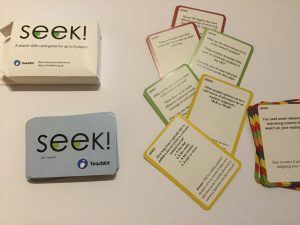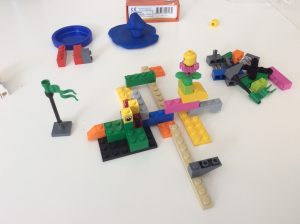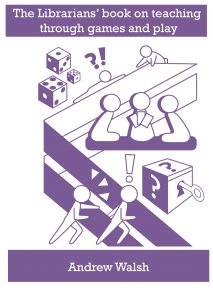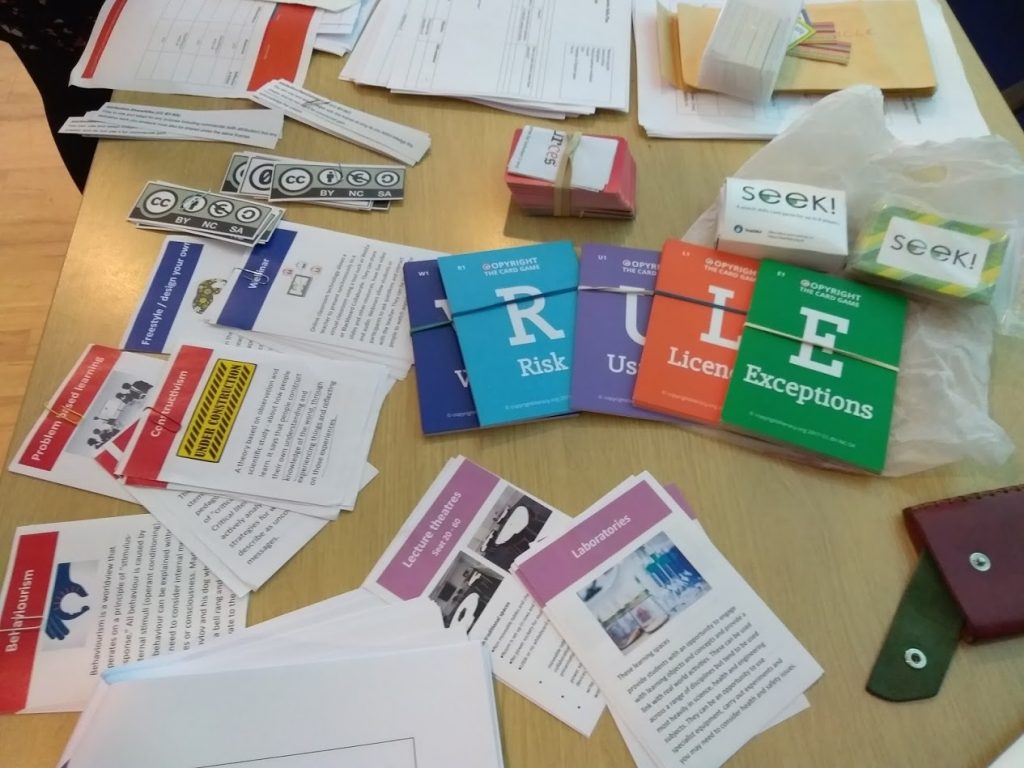 Andrew Walsh is a Training Officer for the CILIP Information Literacy Group. In this guest post, he writes about playful teaching and learning.
Andrew Walsh is a Training Officer for the CILIP Information Literacy Group. In this guest post, he writes about playful teaching and learning.
My teaching has slowly developed over my years as a librarian, from quite a basic start, to something where I have quite a clear vision of myself as a “teacher” or “trainer”, that links to my wider professional vision of what libraries should be about! I’ve changed my understanding of both teaching and learning, AND what information literacy actual is alongside each other, and I hope this will continue as I carry on learning myself.
In my first subject librarian role (about 13 years ago?), I watched someone else deliver an induction to some new students one week and was told “you can do them from next week”. I then watched someone deliver a session demonstrating a database and was told “you can teach information skills now”. I didn’t quite know how I should be teaching, and definitely didn’t have an idea of my professional identity as a teacher, or a clear vision of the pedagogical approaches that worked for me and my learners.
Fairly quickly, I started to be inspired by the more active learning approaches I saw people using, and my teaching became dominated by activities that were often quite short and easy to use (I even wrote a [rather expensive!] book full of them with Padma Inala1). I started to realise that what worked for me as a teacher, and seemed to work for my learners, was this shift from a didactic, “talking at them”, approach, to one that built on their existing understanding and allowed them to interact and discuss things to construct that understanding themselves, a “constructivist” approach to education.

Some of these activities were simple games, which led me further down a game based learning approach. The more I used games, the more I realised that it was play that was the “extra” ingredient, the special sauce that made the game based activities work better for me than some of the other activities I used. I started to see that play was a powerful force to use when trying to develop the information literacy of our learners2 and if we could work out how to give permission for them to play3, then I could get even better results with this approach.

This happened alongside my deeper understanding of what it means to be information literate, and that it wasn’t something that could be taught directly. Information literacy is behaviour driven and deeply contextual, what it means depends on the context in which we are operating. So I can be very “information literate” in one context, but not at all in another. Reflecting on this reality of information literacy fed back into my teaching and learning approaches. I started to understand that I belonged specifically into the “social constructivist” camp when it came to my teaching, and my support in helping people develop their information literacy. So not only do people need to construct their own understanding by building on prior knowledge, they should really be doing this as part of a group – as within Higher Education, the understanding they need is developed within subject areas, professions, communities of practice. So to help students develop their information literacy in a way that was relevant to them in their studies and future work, they should really work together in groups to develop a shared understanding of what it means to be information literate.

This realisation that I should teach in a way that fitted this “social constructivist” teaching philosophy, as it fitted my growing understanding of “information literacy”, helped me shift again. So the play aspect of the games I was using helped enable that social construction of knowledge, because of its inherent ability to enable social activities, to people to try to make sense of things in a safe environment, and to empower them to change the rules as a group and learn things that I might not have explicitly tried to teach (but are things that they find useful). So I not only focus on play and playfulness now (e.g. my latest book on teaching through games and play4), but also have a reason why that works for me, and fits into my vision of what information literacy is, and what my role in developing information literacy should be.
I believe that this is true for me. The best way I can help develop information literacy in myself and in others is through taking a playful approach to teaching and learning. I don’t believe it’s true for everybody though! We all have our own “truth” in this area, where our teaching approach aligns with our views of what people should be learning, and they go onto match our own strengths as a teacher. To get this alignment, to realise our own teaching and learning “truth” we have to try to understand what we are trying to teach. We need to reflect on our own teaching and why we do it in certain ways. We need to interact with the theory and the practice within teaching and learning.
So have you reflected in these ways? Have you developed your teaching philosophy alongside your understanding of information literacy? It would be interesting to hear the “truths” that other people have come to as part of this.
Note: Andrew is a part-time University Teaching Fellow (equivalent of “Reader” but teaching related!) at the University of Huddersfield, a National Teaching Fellow, and a PlayBrarian (“A librarian who teaches grown-ups how to play”). He is one of the training officers for the ILG, but also delivers workshops and training in his own time. He is about to launch the Diamond Open Access (no charges to read or publish in) peer-reviewed “Journal of Play in Adulthood” through the University of Huddersfield Press and will be its first editor. Come along and take part in some learning that matches the above philosophy at EduCamp – https://educampuk.wordpress.com/
References:
1 Walsh, Andrew and Inala, Padma (2010) Active Learning Techniques for Librarians: Practical Examples. Chandos, Cambridge.
2 Walsh, Andrew (2015) Playful Information Literacy: Play and information Literacy in Higher Education. Nordic Journal of Information Literacy in Higher Education, 7 (1). pp. 80-94. https://noril.uib.no/article/view/2502
3 Walsh, Andrew (2018) Giving Permission to Play in Higher Education. In: 4th International Conference on Higher Education Advances. Editorial Universitat Politècnica de València, pp. 329-336. http://ocs.editorial.upv.es/index.php/HEAD/HEAD18/paper/view/7988
4 Walsh, Andrew (2018) The librarians’ book on teaching through games and play. Innovative Libraries, Tallinn.

